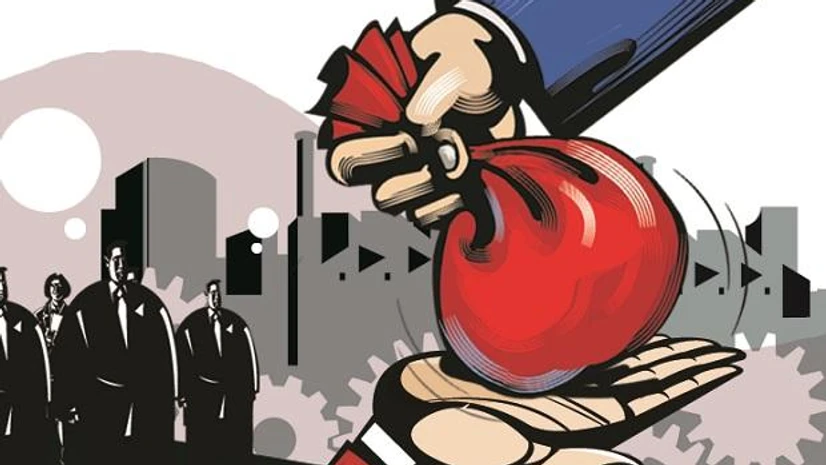The government's subsidies on food, fertilisers and petroleum are estimated to decline by 39 per cent to Rs 4,33,108 crore this fiscal and fall further by 27 per cent to nearly Rs 3.18 lakh crore in 2022-23.
In its revised budget (RE) estimate for the 2021-22 fiscal, the government has pegged total subsidies to be at Rs 4,33,108 crore against the actual budget estimate of Rs 7,07,707 crore in the previous financial year.
Out of which, the food subsidy is estimated to decline to Rs 2,86,469 crore in the current fiscal from Rs 5,41,330 crore in 2020-21, while petroleum subsidy is estimated to fall to Rs 6,517 crore from Rs 38,455 crore in the said period.
However, fertiliser subsidy is estimated to increase to Rs 1,40,122 crore during the ongoing fiscal from Rs 1,27,922 crore in the previous fiscal, according to the Budget document.
During the current fiscal, the Centre has hiked subsidy of non-urea fertilisers several times due to a sharp rise in global prices. The move was aimed to ensure that farmers continue to get Di-ammonium phosphate (DAP) and other nutrients under the Nutrient based subsidy (NBS) policy at a reasonable rate.
Also Read
For the next fiscal, the government said total subsidies are estimated to further decline to Rs 3,17,866 crore from Rs 4,33,108 crore in the current fiscal.
Out of which, fertiliser subsidy is estimated to decline by 25 per cent to Rs 1,05,222 crore during 2022-23 from Rs 1,40,122 crore this fiscal, while food subsidy is estimated to fall by 28 per cent to Rs 2,06,831 crore against Rs 2,86,469 crore in the said period.
Petroleum subsidies are estimated to decline by 11 per cent to Rs 5,813 crore during 2022-23 from Rs 6,517 crore in the current fiscal.
Food subsidy is provided to meet the difference between the economic cost of food grains procured by the government and their sales realisation at the PDS rate called central issue price (CIP) under the National Food Security Act (NFSA) and other welfare schemes.
The government's food subsidy bill has increased substantially since the outbreak of the COVID pandemic.
In March 2020, the Centre had launched the scheme to provide free foodgrains to over 80 crore beneficiaries covered under the National Food Security Act (NFSA) as part of its effort to reduce the hardships of people during the coronavirus pandemic.
The additional foodgrains of 5 kilograms per person per month is over and above the normal quota provided under the NFSA at a highly subsidised rate of Rs 2-3 per kg.
Initially, in 2020-21, the PMGKAY scheme was announced only for a period of three months of April, May and June 2020 (Phase-I).
Later, the government extended the scheme from July to November 2020 (Phase-II).
With the COVID crisis continuing in 2021-22, the Centre in April 2021 had re-introduced the scheme for a period of two months of May and June 2021 (Phase-III) and extended it for another five months from July to November 2021 (Phase-IV). The scheme was again extended from December 2021 to March 2022 (Phase-V).
Similarly, the Centre provides fertiliser subsidies to manufacturers.
The government fixes the MRP of urea being sold in the market. The difference between the selling price and production cost is provided as a subsidy. A nutrient-based subsidy is also being provided on non-urea fertilisers like DAP and MOP.
In petroleum, subsidies are provided on LPG and kerosene.
(Only the headline and picture of this report may have been reworked by the Business Standard staff; the rest of the content is auto-generated from a syndicated feed.)

)
